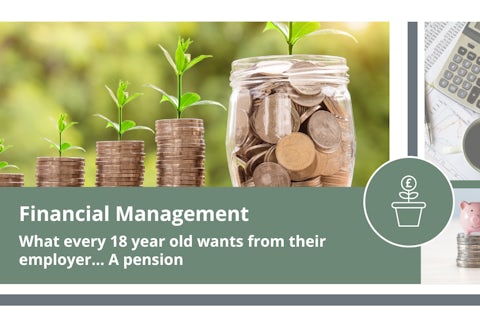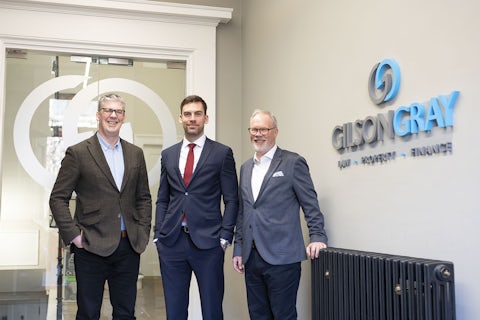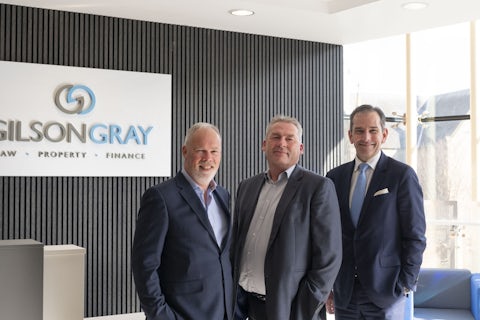Donald Trump’s Europe travel ban sparked an immediate sell-off on markets, but investors shouldn’t allow panic to dictate their decisions.
When the WHO formally labelled COVID-19 a “pandemic”, many investors headed for the exit, but the development was quickly overshadowed by Donald Trump’s televised address to the US nation. His announcement of the travel ban rapidly pushed equities down into bear market territory. There have been only partial signs of recovery on global markets since then.
Were investors right to assume such a drastic economic outcome – and how should policymakers react?
“The depth and duration of the economic impact is uncertain but should be temporary as the outbreak itself will eventually dissipate,” said BlackRock, co-manager of the St. James’s Place Global Equity fund. “That requires a decisive, pre-emptive and coordinated policy response to avoid the disruptions to income streams and financial flows that could cause persistent economic damage – and end the cycle.”
The danger is emotions
Whether that comes sooner or later is not an easy question to answer. However, it doesn’t need to change how investors approach the current pandemic. After all, while the scale of the falls might feel dramatic in the context of recent years, it is hardly entirely new. Indeed, investors have seen five declines of greater than 15% in the period since the global financial crisis.
For those selecting and monitoring fund managers, however, it is at times like these that managers tend to show their true colours.
“The sell-off in markets has been unprecedented in recent times,” said Tom Beal, CIO at St. James’s Place. “We cannot control this, but we can continue to have oversight of our fund managers to monitor that they are behaving in the manner we would expect in such an environment They all have experience of such difficulties in the past, and we have observed their behaviour closely and ability to keep calm. ”
All of which means the greatest danger to a long-term investor at times like these is not what happens in the world outside, but what happens in their own mind and emotions. Perspective is everything.
“At a time like this, when anxieties are high and it proves most difficult to do so, we must have the intestinal fortitude to maintain a long-term perspective,” said Burgundy, co-manager of the St. James’s Place Greater European and Worldwide Managed funds.
Finding the best managers, monitoring their performance
Times like these offer a reminder of the importance of finding the right people to manage your money for the long term. That is why our Investment Committee spends so long deliberating on which manager to choose for any given fund – and on then monitoring that manager’s behaviour over the coming months and years.
Of course, the manager needs to have the right investment philosophy and principles for our clients but, just as importantly, they also need to be able to stick to those principles when there is a major market fall, as in recent days. The Investment Committee therefore pays minute attention to how a manager has behaved during such crises in the past, and to how they are behaving now.
“Our Investment Committee knows all too well that many fund managers overreact when markets make sudden moves – even many who claim they always stick to their long-term investment principles,” said Tom Beal. “That is why we spend so long thinking about which managers to appoint, and then monitoring them on an ongoing basis. We need to see how they’ve responded to both market crises and market rallies in the past and how they’re responding now, to ensure they are sticking to their long-term principles, rather than reacting emotionally. And we are actually seeing many of our managers being highly active at the moment, deploying cash to take up opportunities presented by the current bout of volatility.”
If managers are able to stick to their long-term principles, then timing becomes increasingly irrelevant. Indeed, even if you had invested just before the market fell, you should still expect to meet your long-term financial goals by staying the course. In this context, the greatest danger is that you pull your money out of the market when prices are low, thereby crystallising a loss.
But history shows that long-term investors still manage to realise their goals if they remain invested, even if they invest just before a fall. That is why we believe that you should rely on long investment timespans to achieve your goals, and not magnify the importance of short-term falls. Indeed, this is what we have always believed. In 2018, in fact, we recorded a video that makes exactly this point, courtesy of our Investment Committee Chair, David Lamb.
BlackRock and Burgundy are fund managers for St. James’s Place.
The value of an investment with St. James’s Place will be directly linked to the performance of the funds you select and the value can therefore go down as well as up. You may get back less than you invested.
The information and opinions contained in this blog are for information only. They are not intended to constitute advice and should not be relied upon or considered as a replacement for advice. Before acting on any of the information contained in this blog, please seek specific advice from Gilson Gray Financial Management.








